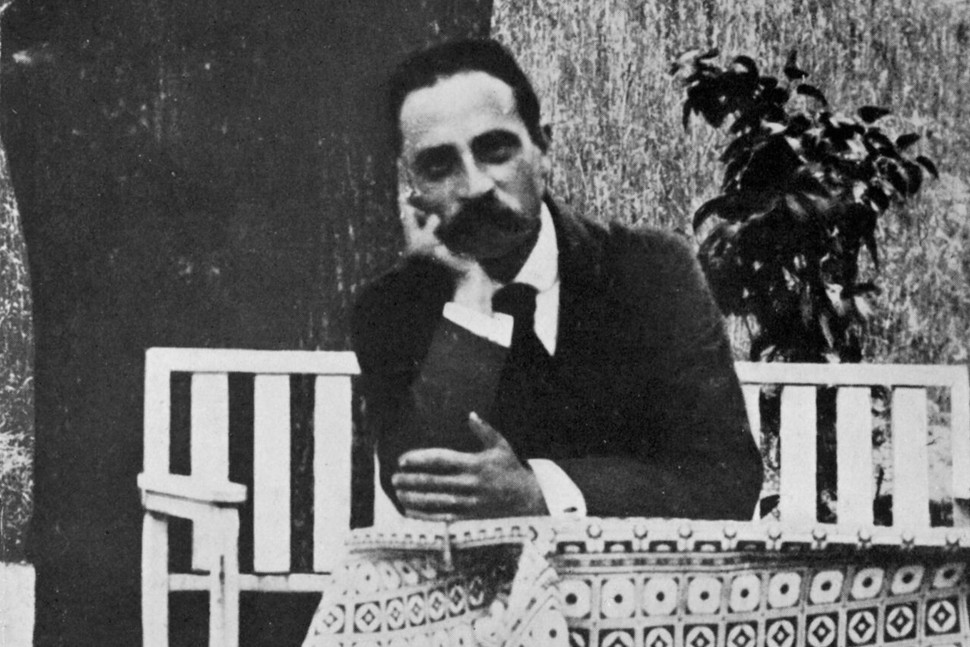Rilke (1876-1925), of course. His Duino Elegies have been called the ‘waste land’ of German poetry.
Of the poem the Panther that he wrote in 1902 inspired by a panther behind bars in the Jardin des Plantes in Paris, there exists several translations. I like this one by Stephen Mitchell best:
The Panther
His vision, from the constantly passing bars,
has grown so weary that it cannot hold
anything else. It seems to him there are
a thousand bars; and behind the bars, no world.As he paces in cramped circles, over and over,
the movement of his powerful soft strides
is like a ritual dance around a center
in which a mighty will stands paralyzed.Only at times, the curtain of the pupils
lifts, quietly–. An image enters in,
rushes down through the tensed, arrested muscles,
plunges into the heart and is gone.
In my Berlin days I always liked Trakl better than Rilke, whose sentimental poems I found verging on kitsch, but the panther is a fine piece of art. You can feel the tiredness of the tiger, that is moving along the bars. The silly rhyme “Stäbe gäbe” doesn’t have an equivalent translation here (another translator tried ‘bars are’). The English introduces a half rhyme hold-world, that perhaps fits the content better than Rainer’s original perfect verse.
The ‘mighty will’ is alluding to Nietzsche’s Großer Wille (Rilke was of course fascinated by the same woman, Lou Salomé, was like Nietzsche anti-Christian and of delicate health). The translation of strides-paralyzed is nice work, though the word ‘ritual’ could have been left out.
The curtain of the pupils is a nice theatrical metaphor. The tiger takes in sparse images, he can’t bear too many, like some modern person who is trying to get off his addiction to social media. The image travels through the still but tense limbs to the heart (the soul?) of the tiger, where it disappears. Isn’t that how we react to visual stimulation on Facebook? We are enraged by what is depicted or described, our rage travels through our tense muscles, while we sit still at our desk, and peters out in our heart, because a few seconds later we have already forgotten the whole thing. What do you think? Can we call a certain type of social media consumers Rilkean panthers?
The original German:
Der Panther
Im Jardin des Plantes, Paris
Sein Blick ist von Vorübergehen der Stäbe
so müd geworden, daß er nichts mehr hält.
Ihm ist, als ob es tausend Stäbe gäbe
und hinter tausend Stäben keine Welt.Der weiche Gang geschmeidig starker Schritte,
der sich im allerkleinsten Kreise dreht,
ist wie ein Tanz von Kraft um eine Mitte,
in der betäubt ein großer Wille steht.Nur manchmal schiebt der Vorhang der Pupille
sich lautlos auf—. Dann geht ein Bild hinein,
geht durch der Glieder angespannte Stille—
und hört im Herzen auf zu sein.

One thought on “Reading: The Panther by Rilke”
Comments are closed.